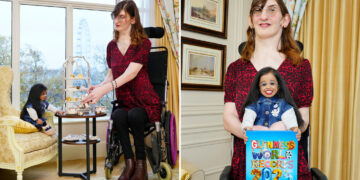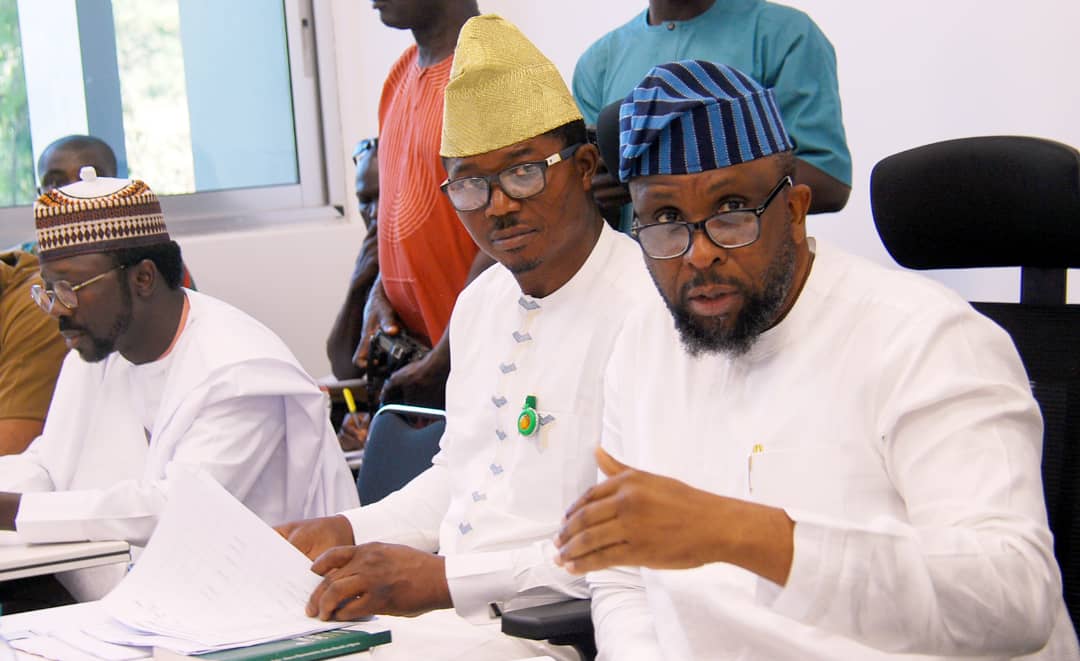News
Hardship: We can no longer plan our meals, FCT residents cry out

A cross-section of residents of the Federal Capital Territory (FCT), says they can no longer fend for their families due to the rising cost of foodstuff.
The residents, who spoke in separate interviews with the News Agency of Nigeria (NAN) on Friday in Abuja, said that eating beans and yam have become a luxury due to its high cost.
This, they said, had affected their domestic food timetable, making it impossible to eat varieties.
Mrs Glory Ocholi, a mother, said that beans have become so expensive that it is difficult to buy in bulk as she usually does to help in her nutrition plan.
“Before now, I used to buy 10 mudus of white beans for between N9, 000 to N10, 000, at N900 to N950 each.
“While the red one was usually slightly above N100 or N200.
“Currently, white beans cost N2,800 while red beans are sold for N3,000 to N3,500 , yam, Irish and sweet potatoes are also very expensive, it is only the rich that can afford them.
“You cannot buy corn or sorghum, vegetables are a no-go area, so at the end of the day, our children are forced to eat whatever we can provide,’’ she said.
Ocholi said that buying foodstuff at a higher cost had forced her to take off meals like ‘akara’ and pap which used to be a Saturday morning meal in her home.
She appealed to both the government and Nigerian Food Products Suppliers and Manufacturers to find ways to address the situation.
Mr Habila Makama, said that he could no longer afford certain foods in his household due to the high prices.
“I used to compliment yam with sweet or Irish potatoes when yam is not in season but now, I cannot afford any of them.
“Sweet potatoes that used to be the cheapest are also expensive. Rice is the only available food now in spite of the cost.
“We eat it every day of the week and probably exchange it with any available swallow with the soup you can afford,’’ he said.
A NAN correspondent who visited the Dutse-Alhaji market reported that five big tubers of yam now go for a negotiable price of N12, 000 to N14, 000.
At Karu market, corn and millet which previously sold for N850 and N900, is now being sold for N1, 300 per mudu.
NAN also reports that a bag of corn which was previously sold for N40, 000 and millet for N65, 000, are now being sold for N90, 000 per bag.
One of the traders in karu market, Mallam Bashiru Ahmed, said that prices of goods fluctuate daily and could increase by 20 per cent or more, within a week.
He said that traders sometimes go to the market to buy a bag of beans for N160, 000, but end up buying for between N180, 000 or N200, 000 due to price fluctuation.
Ahmed attributed the high cost to transportation of the goods from the northern states to the distribution units or towns, where other middle men or traders go to buy from.
“The cost of transportation has contributed to the increase in cost of these foods and it has really affected our business.
“We had to increase the price of grains to meet up with the expenses in logistics, and this is making our customers complain, thereby affecting patronage,’’ he said.
He pleaded with the government to put in place measures that could salvage the cost of transportation and control market price for grains.
This, he said would stop distributors and sellers from inducing unnecessary price increase
News
See Photos of World’s Tallest and Shortest Women Meet for Afternoon Tea in London

The world’s tallest woman and the world’s shortest woman met for the first time this week, sipping tea from china cups — and bonding over what they have in common while celebrating their differences.

Jyoti Amge, shortest woman, and Rumeysa Gelgi, tallest woman, meet for the first time and share afternoon tea
Jyoti Amge, shortest woman, and Rumeysa Gelgi, tallest woman, meet for the first time and share afternoon tea

Jyoti Amge, shortest woman, and Rumeysa Gelgi, tallest woman, meet for the first time and share afternoon tea
Rumeysa Gelgi, from Turkey, stands at 7 feet and 0.7 inches, while Jyoti Amge, from India, is 2 feet and 0.7 inches.
Jyoti Amge, shortest woman, and Rumeysa Gelgi, tallest woman, meet for the first time and share afternoon tea

Jyoti Amge, shortest woman, and Rumeysa Gelgi, tallest woman, meet for the first time and share afternoon tea
Jyoti Amge, shortest woman, and Rumeysa Gelgi, tallest woman, meet for the first time and share afternoon tea
Jyoti Amge, shortest woman, and Rumeysa Gelgi, tallest woman, meet for the first time and share afternoon tea

Jyoti Amge, shortest woman, and Rumeysa Gelgi, tallest woman, meet for the first time and share afternoon tea
“You’re so beautiful,” said Gelgi, 27. “Thank you — you too,” replied Amge, 30.
Their meeting, over afternoon tea at London’s Savoy Hotel on Tuesday, came ahead of Guinness World Records Day, which is held annually in November to mark record-breaking achievements and encourage people to attempt records. The pair have been honored as “World Record icons” in the 70th anniversary edition of the Guinness World Records book.
Story continues below advertisement
“Meeting Jyoti for the first time was wonderful,” Gelgi said in a release Wednesday. “She’s the most gorgeous lady. I was waiting to meet her for a long time.”
Gelgi said the pair bonded over their love for makeup, jewelry and doing their nails.
Video footage showed them sitting down for tea, cakes and sandwiches stacked next to them, with the London Eye visible from the window.
Amge said in the release that she was “so happy to look up” and see the world’s tallest woman, whom she called “good-natured.” She added that it was difficult at times for the pair to make eye contact “due to our height difference.”
“Guinness World Records is all about celebrating differences,” its editor in chief, Craig Glenday, said in a statement ahead of Guinness World Record Day, which is on Thursday.
“By bringing together these two amazing, iconic women, they can share their perspectives on life with each other and, also, with us,” Glenday said.
Gelgi’s record-breaking height is due to a rare genetic condition called Weaver syndrome, which causes rapid growth, according to the National Organization for Rare Disorders.
Story continues below advertisement
The primary symptom is growth and bone development that occurs faster than usual, making those affected taller than average. People with Weaver syndrome may have rigid muscles and difficulty extending their elbows or knees.
Gelgi used a walking aid for support during the pair’s meeting. Her case of Weaver syndrome was the 27th ever diagnosed and the first in Turkey, according to Guinness World Records.
Weaver syndrome is generally caused by changes in the EZH2 gene, according to the NORD, though the organization notes that some people with Weaver syndrome do not have a mutation in the gene.
Story continues below advertisement
Amge, an actor who played the character of Ma Petite in the television series “American Horror Story,” has a genetic growth disorder that occurs in the early stages of fetal development, known as achondroplasia.
According to Johns Hopkins, the condition causes shorter bones, abnormally shaped bones and shorter stature. While the genetic defect can be passed from parent to child, in about 80 percent of cases, achondroplasia results from a spontaneous mutation that occurs in the developing embryo.
On Thursday, Gelgi shared photos on Instagram of the two exploring London despite the cold weather, posing side by side in front of Tower Bridge.
News
Speaker Abbas Decries Gross Inadequacy In Health Sector Despite Annual Allocation

News
Reps Demand Details Of Project Undertaken From Ministry Of Solid Minerals In 2024 Budget

-

 News15 hours ago
News15 hours agoDHQ Gives Updates on on Arrest, Trial of Simon Ekpa in Finland
-

 News15 hours ago
News15 hours agoJapa: 1 of 4 Nigerians want to leave the country – NBS
-

 News14 hours ago
News14 hours agoSenate mandates military to free LGs under B’Haram control
-

 News15 hours ago
News15 hours agoOUTREACH: Senator Manu concludes 2-day ICT program for constituents, distributes over 500 laptops to students (Video/Photos)
-

 News14 hours ago
News14 hours ago2027: Obasanjo’s knock on INEC reopens push for electoral reform
-

 News15 hours ago
News15 hours agoI’m not too young or inexperienced to run for Lagos Governor – Speaker Obasa
-

 News15 hours ago
News15 hours agoSimon Ekpa Sent To Prison
-

 News15 hours ago
News15 hours agoNigerian Catholic religious Sister Uti wins $1.2 million Opus Prize








